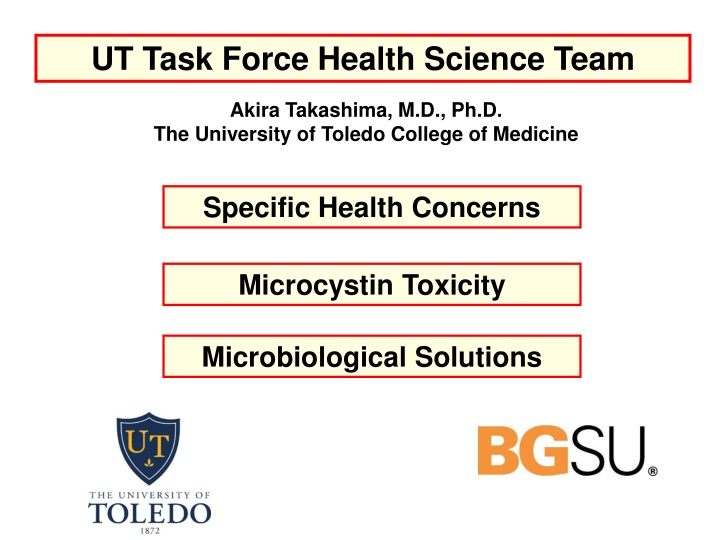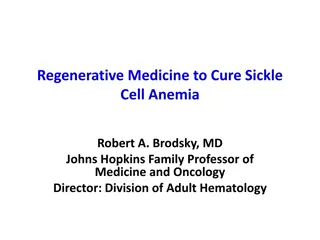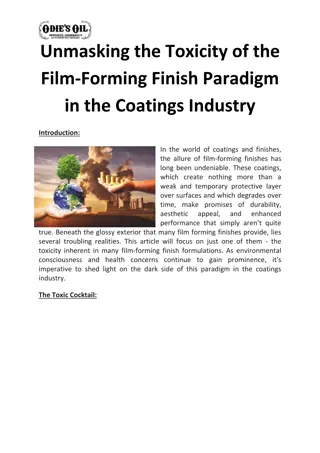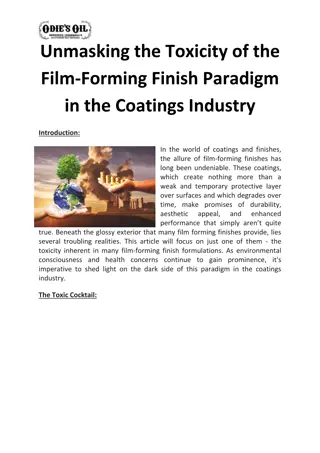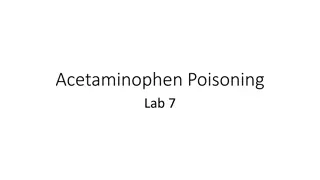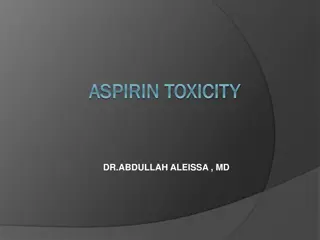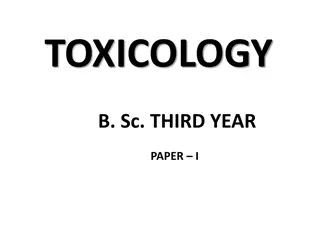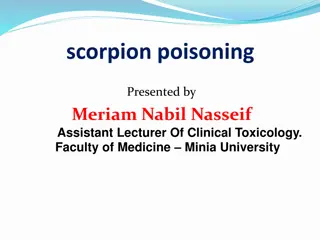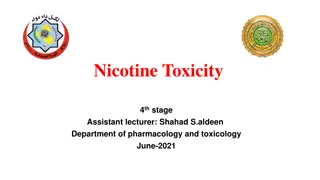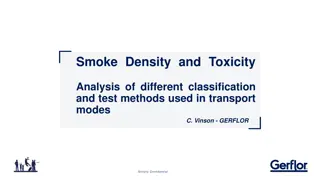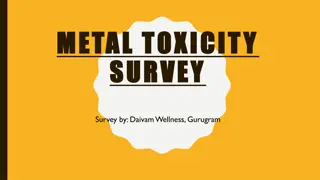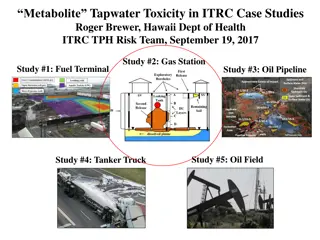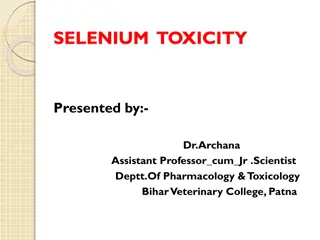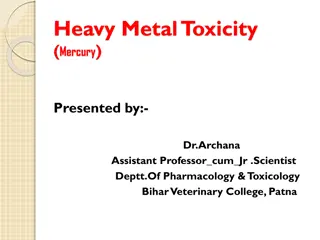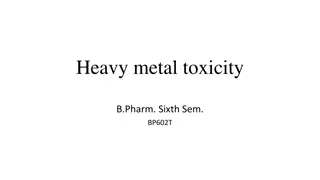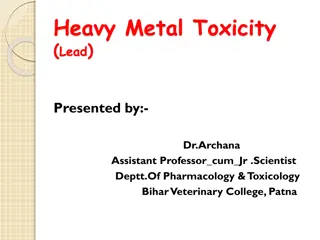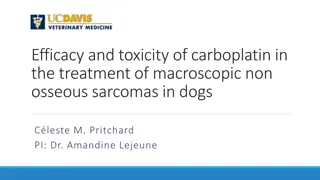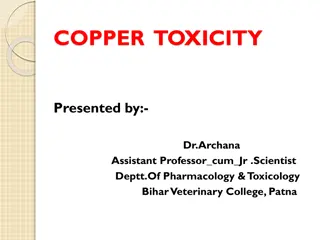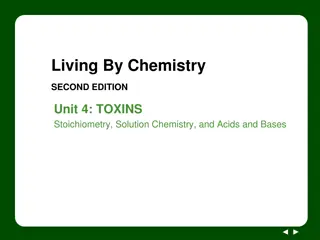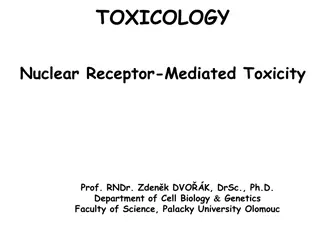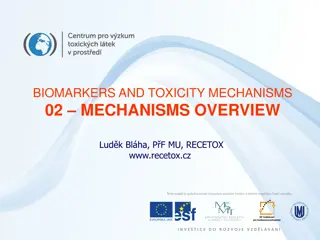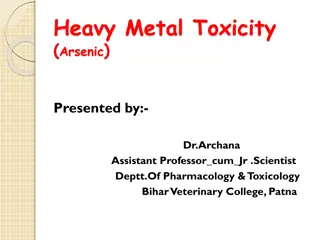Comprehensive Approach to Address Microcystin Toxicity and Solutions by UT Health Science Team
The UT Task Force Health Science Team, led by experts in various fields, focuses on addressing specific health concerns related to Microcystin toxicity. They employ a multidisciplinary approach, utilizing expertise in clinical medicine, public health, microbiology, and molecular biology. The team provides specific resources for clinical samples and information, as well as measurement techniques for over 50 variants of Microcystins. Additionally, they study the toxicity of Microcystins in individuals with liver disease and propose microbiological solutions involving natural enemies for mitigation. Laboratory methods for treating contaminated water include activated charcoal filters, nanofiltration systems, and synthetic filters with biofilm for microcystin degradation.
Download Presentation

Please find below an Image/Link to download the presentation.
The content on the website is provided AS IS for your information and personal use only. It may not be sold, licensed, or shared on other websites without obtaining consent from the author.If you encounter any issues during the download, it is possible that the publisher has removed the file from their server.
You are allowed to download the files provided on this website for personal or commercial use, subject to the condition that they are used lawfully. All files are the property of their respective owners.
The content on the website is provided AS IS for your information and personal use only. It may not be sold, licensed, or shared on other websites without obtaining consent from the author.
E N D
Presentation Transcript
UT Task Force Health Science Team Akira Takashima, M.D., Ph.D. The University of Toledo College of Medicine Specific Health Concerns Microcystin Toxicity Microbiological Solutions
Expertise & Team Members Clinical Medicine Chris Cooper, M.D. (Dean, College of Medicine) Thomas Sodeman, M.D. (Department of Medicine) Bob Mrak, M.D. (Department of Pathology) Ken Hensley, Ph.D. (Department of Pathology) Public Health & Biosafety Sheryl Milz, Ph.D. (Department of Public Health) Mike Valigosky, Ph.D. (Department of Public Health) April Ames, Ph.D. (Department of Public Health) Microbiology & Molecular Biology Isabel Novella, Ph.D. (Department of Micro & Immunol) Jason Huntley, Ph.D. (Department of Micro & Immunol) George Bullerjahn, Ph.D. (BGSU) Mike McKay, Ph.D. (BGSU)
Specific Resources Clinical Samples & Information blood, urine, biopsy & autopsy samples, clinical tests & information Analytical Chemistry UT-Shimadzu Mass Spec Center Assay Development intravital imaging, flow cytometry, mAb/aptamer production, HTP tests Infrastructures for Translational Research Jacobson Center for Clinical & Translational Research (JCCTR) Center for Biomarker Research & Individualized Medicine (BRIM Center) Department of Laboratory Animal Resources (DLAR) Interprofessional Immersive Simulation Center (IISC)
Measurement of Microcystins in Biological Samples >50 variants Mass Spec ELISA Imaging
Toxicity in Individuals with Preexisting Liver Disease Healthy mice Mice with fatty liver Microcystin in drinking water (small dose) IP injection of microcystin (large dose) 12-72 hours 3-12 months Lethality Acute toxicity Chronic toxicity Comprehensive pathology Pharmacokinetics Motile and cognitive performance
Microbiological Solutions: Use of Natural Enemies Sphingomonas Cyanobacteria Microcystin Degradation Bacteriophage Selective killing
Laboratory Size Treatment of Hospital Water Activated charcoal filter Nanofiltration systems Synthetic filter with Sphingomonas biofilm Recombinant enzymes to degrade microcystin Enzyme pills Microcystin Degradation Sterilization Operation Dialysis
